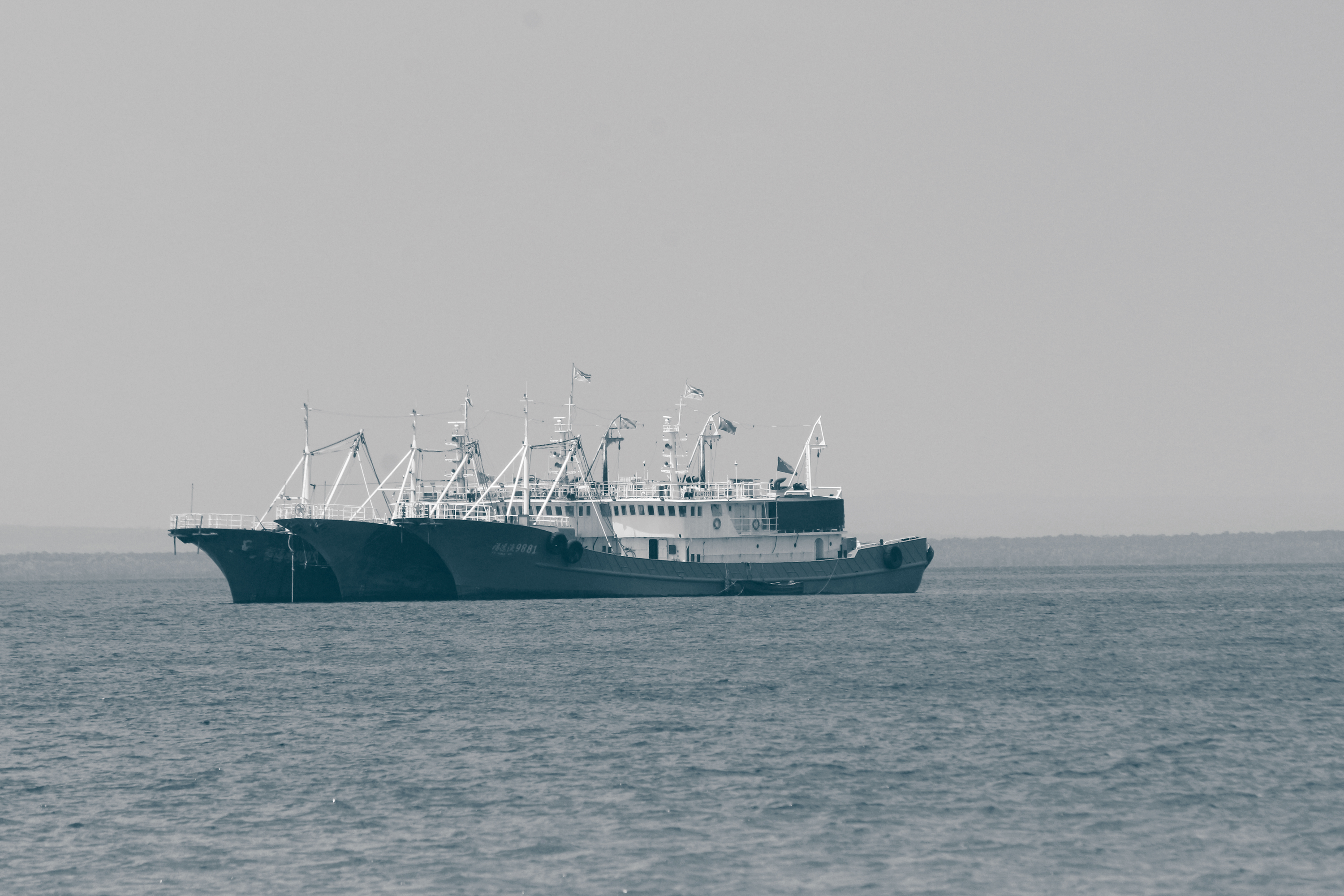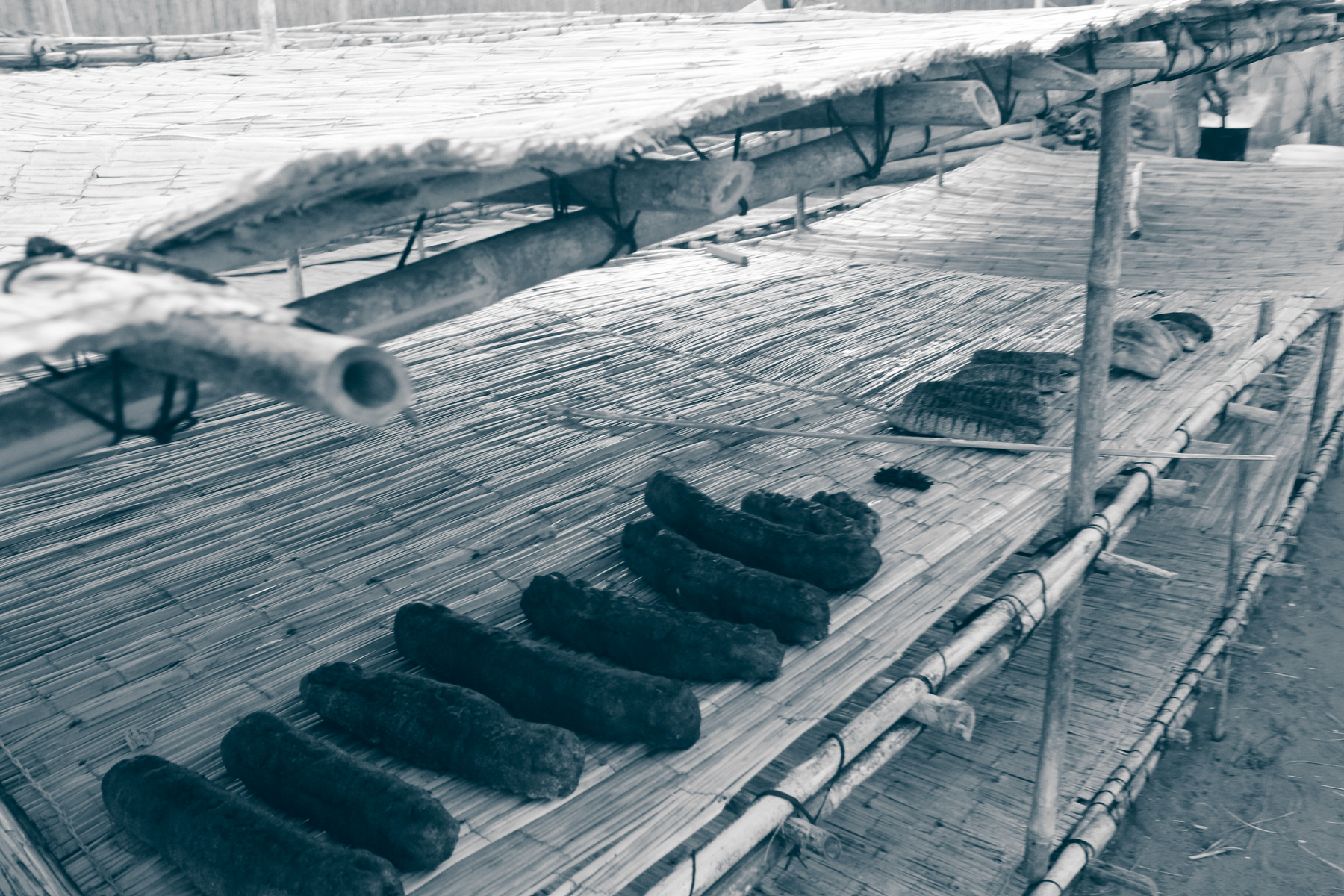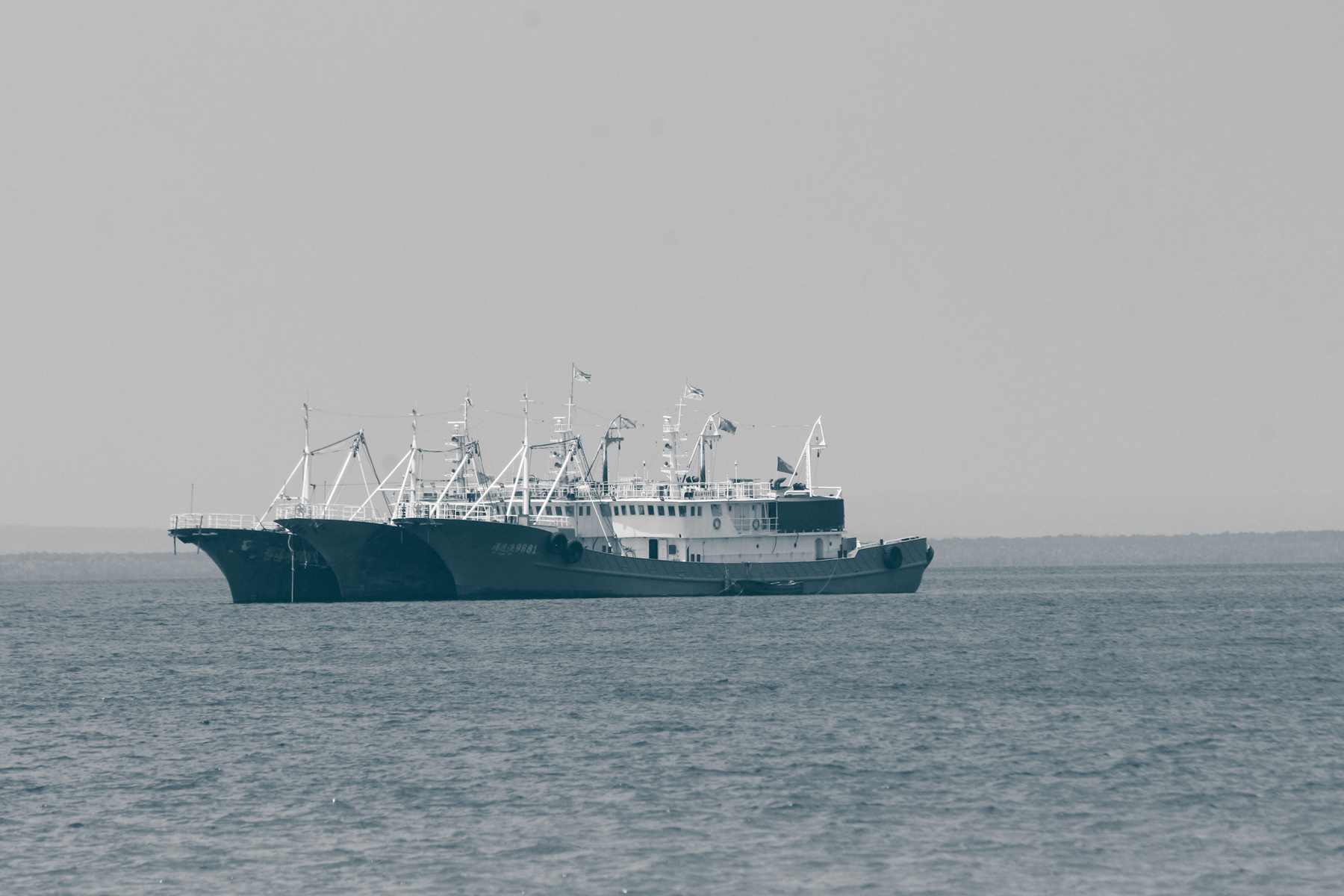A network of Mozambican ruling party leaders and Chinese businesses already notorious for large scale timber looting and deforestation, has moved from plundering Mozambican timber to fish, another natural resource in the country with its long coastline.
The Mozambican-Chinese network is taking fish mainly from the northern Mozambican province Cabo Delgado and Ilha de Moçambique on the coast off Nampula province. Whilst on the ground a customs official helps to pack live lobsters for export and a local mayor rents out his own house to facilitate the packing of a protected sea species, politically connected companies simply receive licenses ‘from the capital’ to make it legal. As a result, fish resources in Mozambique, like the forests, are depleting fast and coastal communities, already tormented by climate change, cyclones and floods, are losing livelihoods and food.
Estacio Valoi investigated the depletion over the past three years.
After cyclones and floods villages are now left without food
Mozambique’s own government says it loses about US$ 63 million a year to poaching by foreign vessels that trawl its coastal waters. That this is so is immediately noticeable to anyone visiting Mozambique’s previously luscious beaches: fishermen despair for lack of any catch to sustain their families, coastal communities have less and less to eat, tourism officials see visitors dwindle because entire species that used to draw scuba diving visitors are gone, while seaside restaurants battle to serve the famous Mozambican prawns.
The government’s official concern about protection of its fish reserves was at the root of an ambitious plan, already in 2013, to set up a national tuna fishing fleet to guarantee the country’s own supply of sustainable fish, plus a set of patrol boats to guard the coastline against foreign poachers. Only it was a scam even then. The Mozambican Tuna Company (Ematum) fraud sent the country two billon US$ into debt, lined pockets of individuals and finds former Mozambican minister of finance, Manuel Chang, arrested at the request of the United States since some of the fraudulent loan transactions passed through banks in New York.
As the patrol and tuna boats lie idle, the concern seems to have dwindled too. Large trawlers, many of which sport Chinese flags, are taking it all under the eyes of the locals.
During repeated visits to the Island between 2017 and 2019, locals unwaveringly report seeing Chinese people busy with their fish: on the ships, at the packing plants, on Pemba and Nampula airport and in the harbors. Remarkably, the local police and customs officials see the Chinese, too, but they don’t seem to care. Industrial-size trawlers and small boats crowd the Island’s coast line in plain daylight; large fish tanks for storage are scattered all over and locals, recruited by Chinese captains to dive for much wanted species, are getting decompression sickness due to the unsafe air containers they are equipped with.
“After a while they are too sick to work,” says Amade Ismael* of the Macua Scuba Association that works to preserve marine life for future scuba diving on Mozambique Island. “For quite a few of them their lives are over. Nobody from the fisheries or labour department intervenes.”

Phantom licenses
Ismael and others in the association have tried to get the government to act on the practice, but tend to get told that the fishing boats have ‘licenses.’ “Phantom licenses,” Ismael calls them, because it is usually impossible to find out who gave out those licenses and on what basis. “We don’t know where they come from. But they keep fishing as much as they want. We found Chinese in thirty meter boats and told them to stop and leave the sea. They just ignored us. We took the case to the local Marine department and pressed charges but nothing was done.” It happens all the time, he adds. “When security forces or customs officers do detain someone who is transporting live lobsters and crabs, you find out that they phoned somebody and were then released.”
An often told story on the Island narrates how when, in 2016, Island mayor Saide Amur, while on a visit to the US, received a phone call to alert him to the fact that a local tourism inspector had found Red Coral, a Chinese fishing company, in possession of a fake operating license that bore the clearly forged signature of the mayor, Saide Amur, himself. After the phone call, Amur first ordered the closure of the company, but then rescinded that order and said it should be allowed to continue to work and that he would solve the problem upon his return from the US.
I can see fish tanks at the house, and a Chinese-looking person cleaning abalone
When I visit the island one year later to see how Red Coral is doing, I see that it is now operating from Mayor Saide Amur’s house. From the top of a nearby building I can see fish tanks at the house, and a Chinese-looking person cleaning abalone, a protected species, in the yard. Spending some time over the next few days, and with binoculars, I also see a toing and froing of fisheries and tourism officials at the house, none of whom seem engaged in stopping any of the activity.
Seeing so many visitors at the house I decide to try my luck and enter through an open entrance on the side. Walking in with my camera I find myself in the kitchen, where Chinese-looking people are boiling something in a big pot. I look closer and see it’s holothurian scraba, an endangered specie of sea cucumber, that goes for US$ 3500 a kg in China. The cooks see me. One of them shouts: “Don’t take pictures!” I bolt.
Local sources will tell me later that Mayor Amur rents his house to the Chinese at US$ 700 a month. After being contacted, Amur promised to send comment on the reports about the rental, but never did.
The customs official is only following orders
At some point during 2017 I meet Red Coral, and its fellow Chinese company Dragao Longo, again, this time at Pemba airport. Its representatives are chatting with customs service and police officials in the hall. “They are packaging and exporting tanks with live crabs and lobster to Singapore, Thailand, and other Asian countries,” says security guard Abdul Salesman*, who knows his regulars by now. “At first, some years ago, they packaged the tanks at private houses and organized the export clandestinely. Now they just do it here. They have gone from 20 boxes per week to 80 or even a 100 boxes. The customs and fisheries authorities, and the police, are assisting the packaging process to avoid embarrassment.” I understand: embarrassment would most certainly happen if anyone would witness this packaging. Exporting live lobster is illegal in Mozambique.
Licenses from Maputo
“Once, two officials from the State Intelligence and Security agency SISI came to interrogate the Red Coral people here about that,” continues Abdul. “They found that ‘Mrs Anastacia’, of the customs services in Cabo Delgado, was with them, inspecting the packaging. They asked her if she was aware that exporting live lobsters was illegal. She replied that she was aware but that she was only following orders and that any question the officials had should be directed to the Ministry of Sea, Inland Water and Fisheries.”
After obtaining a mobile phone number for ‘Mrs Anastacia,’ I find her living in Cabo Delgado. It is 2019 and she is retired now. She refuses to give me her surname but confirms that she was the customs services technical officer at the time. “I was told to supervise the packing process for Dragao Longo, Red Coral, Hui Yuan International. I cannot say if there were illegalities or not. Permits or licenses were granted directly from the Ministry in Maputo.”
Among the authorities mentioned as giving orders to allow exportation, is provincial fisheries department director Cassamo Junior. A member of the anti-poaching unit in the protected Quirimba archipelago, just north of Pemba, tells me that Cassamo has been protecting the Chinese companies that have been fishing in the park for years, violating all kinds of rules and conservation guidelines. “The company Hui Yuan International fished all year round in 2016 from January to January, which is forbidden. But Cassamo was protecting them,” he says. He adds that the unit has not been able to see the text of the license Hui Yuan said it held, but he has no doubt that “allowable quantities” were exceeded. “Three, four trucks carrying three tonnes each were passing by every day.”
Three, four trucks carrying three tonnes each were passing by every day.
The unit sometimes detained the individuals involved in these activities and also issued fines, he continues. “But Cassamo helped them to acquire the needed documents. He also intervened to squash the fines we gave them. Officials from his department went to Hui Yuan to tell them not to pay the fine; that it was illegally issued because only the fisheries department is authorised to issue penalties.”
Hui Yuan is the fisheries subsidiary of Chinese MOFID, which stands for Mozambique First Development Company. The company was exposed in 2013 by the US-based NGO Environmental Investigative Agency (EIA) as responsible for large scale deforestation in Mozambique. EIA’s report then quoted MOFID director Chaoying Liu, as boasting that two Mozambican politicians were assisting the company. “Me and him (former Minister of Agriculture, now Minister of Foreign Affairs and Cooperation José Pacheco, EV) are like brothers,” he told undercover investigators and: “when he [the Minister] needs money, he comes looking for me,” Liu also said that Mandlate (formerly also Minister of Agriculture and current Member of Parliament, EV) “would sort (paper work) out for me” and that he took “care of the liaison work… such as export quotas, forest concession permits.” According to Liu, Mandlate also received “a wage every month” and a stake in the company.
Pacheco and Mandlate have both denied all wrong doing, but MOFID still appears to enjoy political protection. The Mozambican prosecutors’ office, which announced at the time of the EIA report in 2013 that it would investigate MOFID, has not been seen to act on it at all. Moreover, in 2016, -three years after the EIA expose-, MOFID’s fishing subsidiary Hui Yuan obtained a monopoly to buy seafood in the protected nature reserve of the Quirimba National Park, a business they are, according to sources in the area, continuing to conduct today. MOFID manager Vicky Lau, or Weia Liu, as she is called in the Mozambican company registry, is also the general manager of Hui Yuan.
The routes used for the plunder of timber before, and now of fish, seem to have been overlapping, too. Looking to find the premises of Red Coral in Muxara, just outside Pemba, we find they are located inside the timber company Pingos Marinhos, which was also named in the EIA report as involved in timber looting. Whilst in the yard timber logs are piled all over under the watchful eye of two guards, after the entrance check point -a container that hides the inside of the premises from the eye-, there are three swimming pools full of fish. Next to the pools, boxes of lobsters are being packed for export.
In charge, say sources from customs and police, is a certain Mr. Lee.

The coastline and the contracts
But Hui Yuan is now the only company that is allowed to fish in the protected Quirimba archipelago, confirms the same anti-poaching unit member quoted above. “They say it is to stop the looting, but now local communities are even worse off -they have now only one buyer for what they fish, so the buyer can dictate the price.”
The local World Wildlife Fund (WWF) office in the area, that interacts with communities in the archipelago, has a copy of a contract, dated 4 June 2016, between Hui Yuan and representatives of the local Ibo community. It gives MOFID “exclusive access to shrimps and crabs” and the right to “sustainable marine exploit, tation according to the license.” (The text of the license is, as is often the case, not known.) According to WWF spokesman Carlos Serra, the agreement not only violates the conservation areas by encouraging illegal fishing by communities (to sell to Hui Yuan), but it also does not protect community rights with regard to labour, price and sustainability.
It is questionable if the community representatives knew what they were signing, or what their legal rights were. Local sources say the contract was signed at night, without a lawyer present. With regard to benefits for the community the contract only stipulates, -besides an undertaking by the company to “reinforce the community fishing equipment,”- that the locals will receive a total daily amount of US$ 9,60 and every three months a “tax” of US$ 80: less than the US$ cost of a simple plate of lobster in the international market.
The director says the fishing has stopped
Asked to comment in April 2019, provincial fisheries department director Cassamo Junior says that fishing by Hui Yuan and other Chinese companies has come to an end in Cabo Delgado. In an emailed response to questions he writes that “Hui Yuan International finished its activities in 2017,” that “only artisanal fishing is now allowed” and that he has always “acted within the law” with regard to the Quirimba National Park fishing activities. He did not answer the question how it was then possible that large Chinese fishing trawlers were still seen all around Cabo Delgado in 2018 and the first months of 2019. Sources in Quirimba confirmed, also in April 2019, that “Hui Yuan International is still in the business, together with old (Chinese fishing companies) and new ones. They are buying crabs from inside Quirimba National Park and transporting it to Pemba through the sea. There is no control.”

A very powerful general
Slightly north of the archipelago, in Maligerane village in the Pangane area, rumour has it that veteran General Alberto Chipande, one of ruling Frelimo’s biggest bigwigs, a close ally of President Nyusi and a member of the network where political elite meets business interests, runs his own fisheries company. The company, -called Maligerane like the village-, is not registered in the provincial fisheries department and it is therefore unlikely that it holds any formal fishing licenses.
Few people here dare ask the General about that. Armed insurgents operate in this region at the behest of shady warlords, who may or may not be connected to the army itself. The fighting, even if no one is sure exactly how, seems connected to the fact that the richest gas resource in the world was discovered here recently. And another company of Chipande’s, Quionga Energia, is into gas.
Maligerane village fishermen in the district close to Pangane, -which boats one of the most beautiful beaches in the world-, had told me that the Maligerane fisheries company belonged to Chipande. They had also said it was protected by a private security force called Sakudimba Segurança and that it was led by Chipande’s son, Namoto Chipande. The economic services department in the district had subsequently confirmed that Maligerane had been exporting fish for years, and that it was expected to “soon” be exporting about three tonnes per week.
In comparison, artisanal fishermen only got to catch two, three tonnes over the whole of last year 2018, says a fisheries official in the district when I speak to him early in 2019. “They stay longer at sea, because they have larger boats with fridges on board. Our fishermen can only stay a couple of days with their small vessels.” “We used to fish about seven, eight tonnes per year but nowadays we don’t get even half of that,” say local fishermen. “The general has resources and you cannot compete with him.”
He has resources and you cannot compete with him
Locals say that they witnessed Chipande conducting a “merger celebration” with Chinese exporters – it is not known if these were Hui Yuan or another company – in either late 2016 or early 2017 and that his company uses Chinese fishing boats.
The General also reportedly has another fishing company in Inguana on the other side of Pangane, which is also said to be booming.
With regard to the Maligerane company, director Cassamo Junior of the provincial fisheries department says that the department is “aware of a fishing business with a large fridge” in the area but refuses to confirm that the owner is General Alberto Chipande. When asked outright if we are not talking about Chipande, he does not reply.
-
Vicky Lau of Hui Yan and MOFID did not respond to questions emailed to the address listed on her business card.
A contact for General Alberto Joaquim Chipande could not be obtained, but his lawyer did not respond to phone calls or SMS’s requesting Chipande’s comment on the allegations made about him. A business associate of Chipande was also approached, but he also did not respond.
The fisheries ministry of Mozambique did not respond to emailed questions.
*Arrest in Palma
When Estacio Valoi in December 2018 went to report on the situation in conflict-ridden Mocimboa da Praia in the Palma district of Cabo Delgado, he and two others driving in the same vehicle were detained by the army for three days. Valoi was told “you will die here and no one will know why” and his laptop, camera and phone were taken. Though this was not the main purpose of the reporting at the time, he had also just visited Macomia district to investigate illegal fishing allegations against Mozambican General Joaquim Alberto Chipande.
*Names marked with an asterisk have been changed for security reasons.


